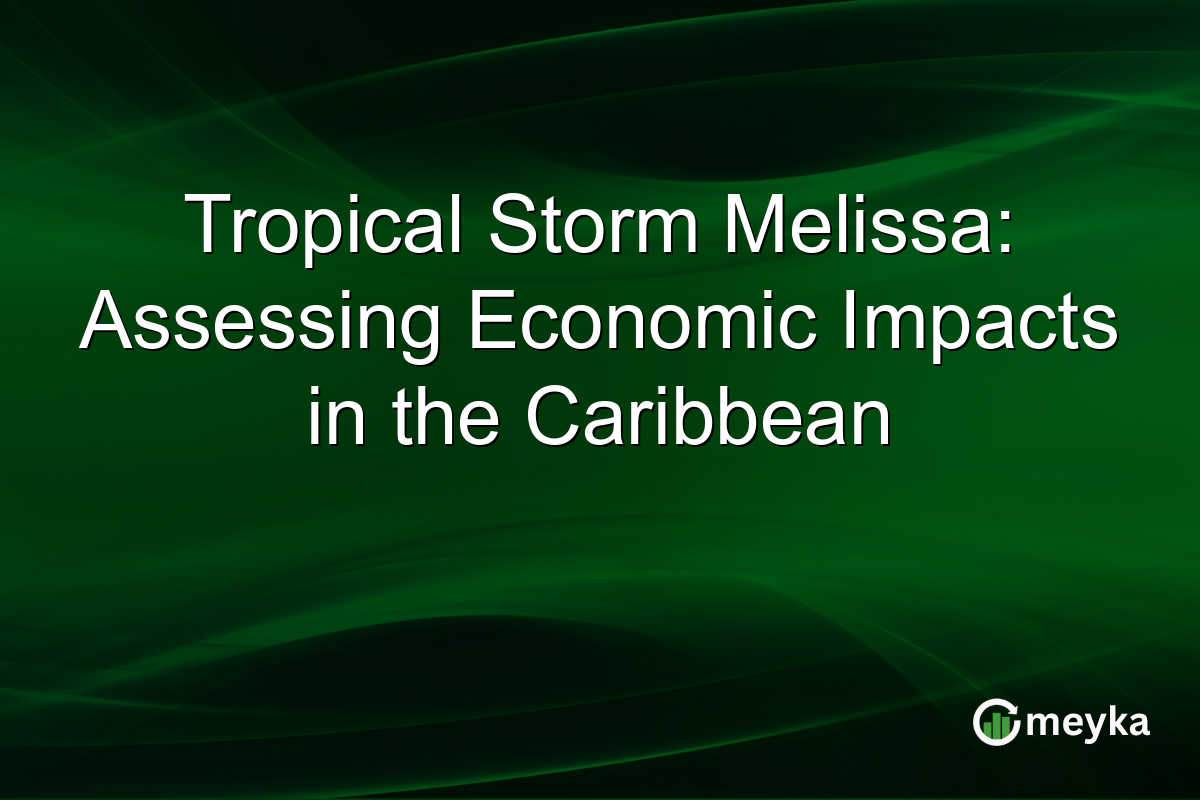Tropical Storm Melissa: Assessing Economic Impacts in the Caribbean
Tropical Storm Melissa, currently gaining strength, is poised to impact the Caribbean with significant weather events. Predicted to bring heavy rains and potential flooding, regions like Hispaniola and Jamaica are on high alert. These weather conditions could drastically affect Caribbean tourism and local economies. Adverse weather not only deters travelers but also puts immense pressure on already fragile infrastructure.
Understanding Tropical Storm Melissa
Tropical Storm Melissa is projected to intensify as it moves across the Caribbean. According to the National Hurricane Center, heavy rainfalls and strong winds are on the horizon. This level of storm activity can lead to flooding, landslides, and significant damage to infrastructure. The storm’s trajectory includes northern Caribbean islands, where the impact can be tremendous.
On X, users expressed concerns over travel plans and local preparedness. Social media buzz suggests heightened awareness but also fear regarding economic stability.
Caribbean Tourism and Its Vulnerabilities
Caribbean tourism has often been vulnerable to natural disasters. Past storms have shown how destructive weather can lead to cancellations and declines in tourist arrivals. As a vital economic sector, disruptions here have wider implications. The tourism industry supports numerous jobs and underpins many local economies, making it essential that they remain viable.
This context underscores why strong storm forecasting is crucial. Accurate predictions help mitigate risks and protect both tourists and local businesses from potential losses. Learn more about tropical storm forecasts via the National Hurricane Center.
Economic Impact on Local Economies
The economic impact extends beyond tourism. Infrastructure damage from Tropical Storm Melissa could affect public services, agriculture, and trade. Roads and communication networks are at risk, potentially leading to long recovery times and increased financial burdens for governments.
In countries like Jamaica and the Dominican Republic, agriculture plays a crucial role in economic health. Storms can devastate crops, leading to food shortages and increased imports, straining local budgets. This reinforces the need for resilient infrastructure and emergency planning.
Measures and Forward Planning
Governments across the Caribbean are activating emergency protocols to manage the impacts of Tropical Storm Melissa. This includes strengthening public infrastructure and ensuring the readiness of medical facilities. Investment in better forecasting technology is also on the rise to improve response times.
Public awareness campaigns focus on safety measures, highlighting the importance of preparation. Communities are encouraged to have emergency kits and clear evacuation plans to reduce harm.
Final Thoughts
Tropical Storm Melissa presents significant challenges to the Caribbean. Its potential to disrupt tourism and damage infrastructure underlines the region’s vulnerability to natural disasters. For the hospitality industry, proactive measures are essential to recover swiftly. Infrastructure improvements, alongside effective storm forecasting, can mitigate future risks.
From a broader economic perspective, diversified economies and investments in resilience can help Caribbean nations adapt and thrive despite frequent climatic threats. National and regional cooperation will be key in building a robust response system to safeguard livelihoods and attract sustainable tourism.
FAQs
Tropical Storm Melissa can deter tourists by causing travel disruptions and safety concerns. Damage to tourist attractions and infrastructure leads to cancellations and economic decline in the sector.
Hispaniola and Jamaica are currently expected to experience the heaviest impact. These areas may see significant rains and potential flooding, affecting both urban and rural regions.
Accurate storm forecasting enables timely preparations, reducing damage and saving lives. It also helps in allocating resources efficiently and minimizing economic losses.
Disclaimer:
This is for information only, not financial advice. Always do your research.






